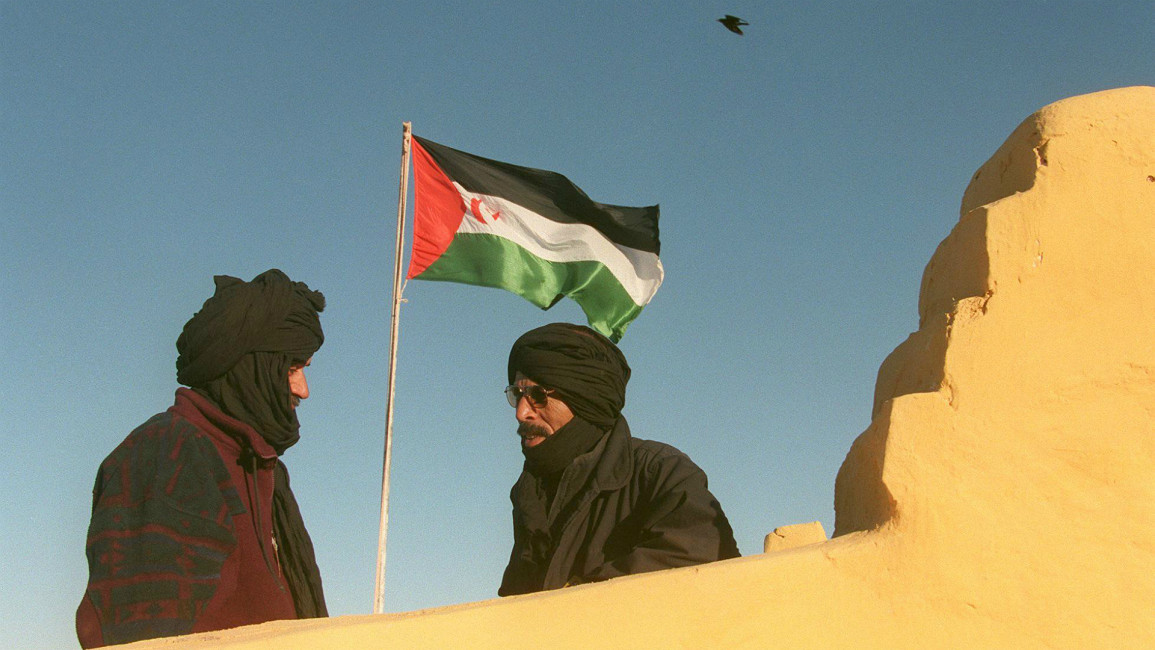
All change for Western Sahara? Polisario Front leader replaces prime minister in shake-up of power
Abdelkader Taleb Omar was appointed prime minister of the Polisario-declared state of Western Sahara on October 29, 2003.
One of the more senior members of the Polisario Front, he had emerged onto the political scene after ousting his cousin, Uald Swailam, who was his main opponent for leadership.
Uald Swailam escaped to Morocco after turmoil hit the Front in 1988, when the military decided to intervene to contain the popular unrest widespread in the camps at that time.
The protesters, who were believed to be led by the now-former prime minister, loosened the military wing's grip on the camps to lay the foundations Western Sahar's civil governance. Abdelkader Taleb Omar's plan had been to convince the Mohamed Abdelaziz, the former Sahrawi president, to adopt a degree of civil governance in order to eliminate other adversaries.
However, and after the 2016 death of Abdelaziz, it was evident that a major change was due in the shaping of the Front. Abdelaziz's successor, Brahim Ghali, belonged to a rival camp due to his loyalty as former military leader who turned to politics ony in recent years at the Polisario embassy in Algiers.
The division between Ghali and Abdelkader Taleb Omar led to the rise of Bachir Mustafa Sayad, the brother of Alwali Mustafa Sayad, the founder of the Polisario Front, and Ghali's trusted ally. He is now believed to be the new mastermind of the government, having enjoyed closer relations with the president since Ghali appointed him chancellor.
This rise of the Sayad-Ghali faction led to this week's sacking of Abdelkader Taleb Omar as prime minister, with the president ultimately opting for "soft power" to prepare the ground for the future of the Polisario Front.
The newly appointed prime minister, Mohamed Alwali Akaik, is believed to be one of Brahim Ghali's most loyal allies. Akaik has served as the head of the intelligence services and held other posts as Minister of the Polisario-controlled territories.
Alwali Akaik has also been gaining more popularity than Abdelkader, who held the position for 15 years without any change in the plight of the Western Sahara.
But the new prime minster is not expected to hold as broad powers as his predecessor; Sayad and Ghali are likely to take matters into their own hands. Alwali Akaik is expected to have less independence and will likely have to wait for Brahim and Bachir's consent for any domestic or foreign decisions he may make.
Importance
In recent months, there has been the establishment of the Sahrawi Initiative for Change, a group been led by Alhaj Lahmayar, who served as the Front's minister to Latin America before he resigned because of personal differences with Abdelkader Taleb Omar.
Since his resignation, the Polisario diplomat has been excluded from government - until he decided to make a comeback through the Sahrawi Initiative for Change to fight what he has been calling "corruption". The Initiative has attracted attention across Sahrawi media and news of its founding has reached the Sahrawi refugee camps - though many of its members and their families live abroad.
Nevertheless, Lahmayar and his colleagues' uproar over "change" has been less popular, as they have not made any appearances in weeks.
The sacking of the prime minister and the promised new appointments under Mohamed Alwali's administration is believed to have encouraged the group to wait to see how the new government reacts to them; the Polisario Front's Congress is supposed to take place soon, though no date has yet been set.
Habibulah Mohamed Lamin is a journalist formerly based in the Western Sahara refugee camps in Tindouf, Algeria. He has worked as a translator and is director of Equipe Media Branch, a group of media activists covering Western Sahara. His work focuses on the politics and culture of the Maghreb.
Follow him on Twitter: @habibullahWS



